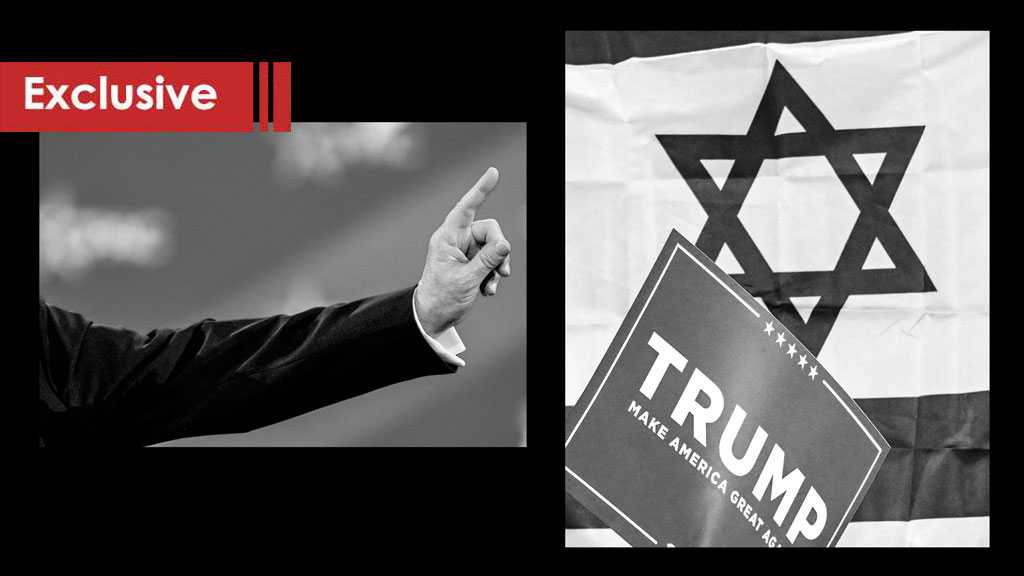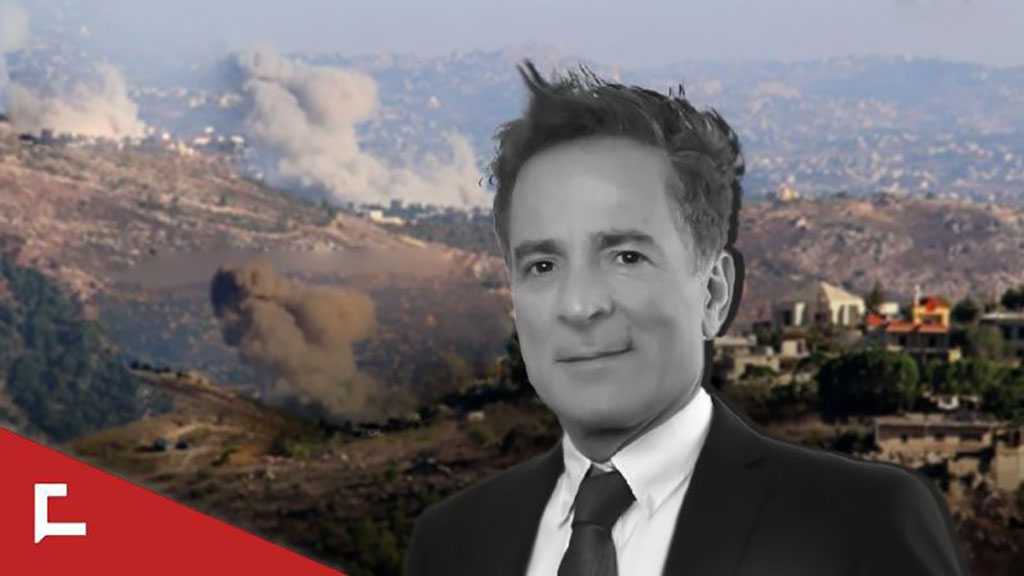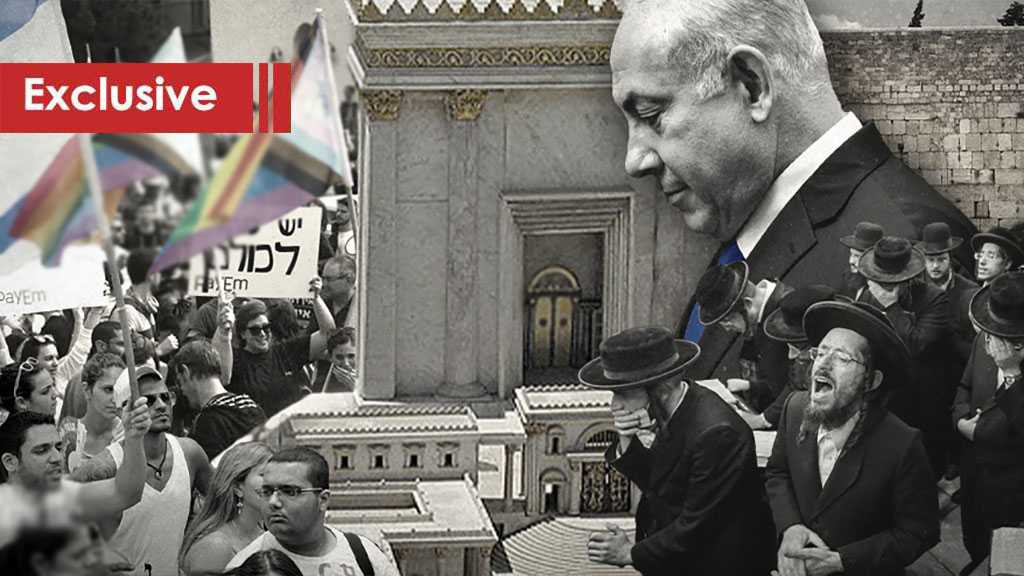Enough Meddling, Enough!

By J.B.
With the uprisings across the Middle East, from Tunisia to Bahrain, the U.S. continues to meddle in foreign affairs to maintain its hegemony in the region.
For decades, the U.S. has supported and continues to support corrupt regimes that allow the U.S. and "Israel" to maintain dominance in the region all while turning a blind eye to acts of torture and murder the regimes force upon their people.
The repercussions of supporting such regimes have left the Arab world torn and in turmoil as the doors of opportunity and prosperity for the Arabs remain closed.
In order to now help open those doors of opportunity, U.S. Secretary of State Hillary Clinton is touring the Middle East to spread and encourage democracy.
Earlier this week, in a speech given on Tuesday in a meeting with Egyptian Foreign Minister Nabil Al Arabi, Clinton expressed support for democratic reforms, urging the Egyptians a successful transition to democracy.
Aside from promoting democracy, Clinton also offered $90 million of economic assistance to the Egyptians. Along with promoting democracy, Clinton also had the opportunity to tour Tahrir Square, the epicenter of the Egyptian revolution.
With her visit to Egypt, many in the Middle East remain hesitant in trusting the U.S., as they have every right to do so.
It was reported by numerous news agencies that the "January 25 Coalition" in Egypt rejected Clinton's visit and refused to meet with her due to the U.S.'s extensive military, political, and financial support towards the brutal Mubarak regime.
On Thursday of this week, Clinton also visited Tunisia pledging to assist in their transition to democracy and in drafting a new constitution where she was met by protesters to end U.S. meddling in Tunisian affairs.
According to Alci Rengifo, a freelance journalist and researcher, the U.S. knows how delicate the situation is in the Middle East especially since their interests are at stake and they are certainly afraid of independent states.
"The U.S. is very aware that it simply cannot lose control of the Middle East, an area where figures like Churchill and Eisenhower described as a source of immense resources, wealth and power," Rengifo said.
"The U.S. is absolutely terrified of real, popular democracy, maybe in the style of Venezuela or Bolivia, taking root in the Middle East."
For the Arabs to establish themselves without U.S. interference would allow Arab states to prosper and advance politically, economically, and militarily thus not favoring U.S. interests in the region. Arab reforms should be made in favor of their country and the decisions they make will benefit the society in which they live. This is nightmare the U.S. does not want to see because it will certainly not serve them or their corrupt allies in the region.
For last decade, the U.S. has spent over $1 trillion financing wars and maintaining the power of corrupt regimes to ensure its interests are not at stake which are all gained and protected in the name of freedom and democracy.
During the decades of supporting corrupt regimes, the U.S. clearly understood that the people of the Middle East were deprived of the opportunity to live freely and not under a police state supported by the West.
After witnessing the U.S.'s abandonment of the Mubarak regime, many Arab regimes hoped to remain in power and still meet the protester's demands.
"Professor Noam Chomsky has said it best in some recent talks on the current uprisings when he observes that since it is powerless to stop the popular uprisings, the Obama administration has decided to try and hold on to some dictators until the very end (Saudi Arabia, Bahrain, Oman), but in countries like Egypt and Tunisia, it has decided to simply adapt to the situation and try to manipulate circumstances to still favor imperial doctrine, which explains in part Clinton's visit to Egypt," Rengifo said.
"It's a perverse version of the old saying, ‘if you can't beat them, join them,' except in this case it means ‘ok, Mubarak and Ben Ali were overthrown, how can we make sure the new governments still follow our orders?'"
With bloodshed and turmoil steadily increasing in Bahrain and with Saudi Arabian and Emirati forces having entered the state in defense of the Al Khalifa family (ruling family of Bahrain), the U.S. continues to support its allies and meddle in foreign affairs. Bahraini and Saudi government forces are using U.S. weapons (previously purchased) to suppress the legitimate demands from protesters with what began as peaceful protest on Feb. 14.
"The uprising in Bahrain could easily become more radicalized now that a foreign power has invaded the country," Rengifo said.
" Until now the movement has been mostly peaceful and unarmed, and the general demands have not been too radical with some key leaders not calling for the overthrow of the monarchy but instead for basic, constitutional reforms."
On Mar. 16, Clinton issued statements condemning the violence on both sides, stressing that a peaceful resolution must be reached through dialogue; yet, the U.S. administration fails to act positively by pressuring the Bahraini, Saudi, and Emirati governments.
By remaining silent and not pressuring Bahraini, Saudi, or Emirati governments to lay down their arms and answer to the demands of the people, the U.S. administration turns yet another blind eye to the killings that are taking place which will only demand more support against the monarchy.
With more support, Rengifo believes that the uprisings can radically change to possibly overthrowing the monarchy.
"The invasion by the Saudis, and the latest violence against protesters, unreported by the West but covered by regional outlets such as Iran's PressTV, could push the uprising into a more violent conflict or provoke radical demands, such as the complete overthrow of the monarchy which has already been voiced by some, to become more widespread and popular," he said.
It is this verbal rhetoric by the U.S. administration and meddling that the Arabs have become familiar with for decades; the U.S. administration's disconnect from the people's sufferings have made Arabs realize that it is only up to them to achieve successful reforms in their country.
The U.S. administration certainly is not going to tell the regimes to step-down despite the killings of innocent people; this would send a strong message to many of the monarchs in the region.
"There is also the very real, very dark possibility of a horrible massacre with Obama simply looking the other way," Rengifo said.
"If the uprising in Bahrain can manage to attract broader sectors of society, especially now that the country is occupied, it might have a fighting chance. A mass, peaceful mobilization against the government and occupation could become a real headache for the monarchy."
It is because of U.S. foreign policy of exploitation and hypocrisy that these uprisings across the Arab world are taking place.
Hope for true reform and liberation from oppression lies in the hands of the people who are fighting their corrupt governments and also in the hands of those who truly stand beside and support their liberation.
With the uprisings across the Middle East, from Tunisia to Bahrain, the U.S. continues to meddle in foreign affairs to maintain its hegemony in the region.
For decades, the U.S. has supported and continues to support corrupt regimes that allow the U.S. and "Israel" to maintain dominance in the region all while turning a blind eye to acts of torture and murder the regimes force upon their people.
The repercussions of supporting such regimes have left the Arab world torn and in turmoil as the doors of opportunity and prosperity for the Arabs remain closed.
In order to now help open those doors of opportunity, U.S. Secretary of State Hillary Clinton is touring the Middle East to spread and encourage democracy.
Earlier this week, in a speech given on Tuesday in a meeting with Egyptian Foreign Minister Nabil Al Arabi, Clinton expressed support for democratic reforms, urging the Egyptians a successful transition to democracy.
Aside from promoting democracy, Clinton also offered $90 million of economic assistance to the Egyptians. Along with promoting democracy, Clinton also had the opportunity to tour Tahrir Square, the epicenter of the Egyptian revolution.
With her visit to Egypt, many in the Middle East remain hesitant in trusting the U.S., as they have every right to do so.
It was reported by numerous news agencies that the "January 25 Coalition" in Egypt rejected Clinton's visit and refused to meet with her due to the U.S.'s extensive military, political, and financial support towards the brutal Mubarak regime.
On Thursday of this week, Clinton also visited Tunisia pledging to assist in their transition to democracy and in drafting a new constitution where she was met by protesters to end U.S. meddling in Tunisian affairs.
According to Alci Rengifo, a freelance journalist and researcher, the U.S. knows how delicate the situation is in the Middle East especially since their interests are at stake and they are certainly afraid of independent states.
"The U.S. is very aware that it simply cannot lose control of the Middle East, an area where figures like Churchill and Eisenhower described as a source of immense resources, wealth and power," Rengifo said.
"The U.S. is absolutely terrified of real, popular democracy, maybe in the style of Venezuela or Bolivia, taking root in the Middle East."
For the Arabs to establish themselves without U.S. interference would allow Arab states to prosper and advance politically, economically, and militarily thus not favoring U.S. interests in the region. Arab reforms should be made in favor of their country and the decisions they make will benefit the society in which they live. This is nightmare the U.S. does not want to see because it will certainly not serve them or their corrupt allies in the region.
For last decade, the U.S. has spent over $1 trillion financing wars and maintaining the power of corrupt regimes to ensure its interests are not at stake which are all gained and protected in the name of freedom and democracy.
During the decades of supporting corrupt regimes, the U.S. clearly understood that the people of the Middle East were deprived of the opportunity to live freely and not under a police state supported by the West.
After witnessing the U.S.'s abandonment of the Mubarak regime, many Arab regimes hoped to remain in power and still meet the protester's demands.
"Professor Noam Chomsky has said it best in some recent talks on the current uprisings when he observes that since it is powerless to stop the popular uprisings, the Obama administration has decided to try and hold on to some dictators until the very end (Saudi Arabia, Bahrain, Oman), but in countries like Egypt and Tunisia, it has decided to simply adapt to the situation and try to manipulate circumstances to still favor imperial doctrine, which explains in part Clinton's visit to Egypt," Rengifo said.
"It's a perverse version of the old saying, ‘if you can't beat them, join them,' except in this case it means ‘ok, Mubarak and Ben Ali were overthrown, how can we make sure the new governments still follow our orders?'"
With bloodshed and turmoil steadily increasing in Bahrain and with Saudi Arabian and Emirati forces having entered the state in defense of the Al Khalifa family (ruling family of Bahrain), the U.S. continues to support its allies and meddle in foreign affairs. Bahraini and Saudi government forces are using U.S. weapons (previously purchased) to suppress the legitimate demands from protesters with what began as peaceful protest on Feb. 14.
"The uprising in Bahrain could easily become more radicalized now that a foreign power has invaded the country," Rengifo said.
" Until now the movement has been mostly peaceful and unarmed, and the general demands have not been too radical with some key leaders not calling for the overthrow of the monarchy but instead for basic, constitutional reforms."
On Mar. 16, Clinton issued statements condemning the violence on both sides, stressing that a peaceful resolution must be reached through dialogue; yet, the U.S. administration fails to act positively by pressuring the Bahraini, Saudi, and Emirati governments.
By remaining silent and not pressuring Bahraini, Saudi, or Emirati governments to lay down their arms and answer to the demands of the people, the U.S. administration turns yet another blind eye to the killings that are taking place which will only demand more support against the monarchy.
With more support, Rengifo believes that the uprisings can radically change to possibly overthrowing the monarchy.
"The invasion by the Saudis, and the latest violence against protesters, unreported by the West but covered by regional outlets such as Iran's PressTV, could push the uprising into a more violent conflict or provoke radical demands, such as the complete overthrow of the monarchy which has already been voiced by some, to become more widespread and popular," he said.
It is this verbal rhetoric by the U.S. administration and meddling that the Arabs have become familiar with for decades; the U.S. administration's disconnect from the people's sufferings have made Arabs realize that it is only up to them to achieve successful reforms in their country.
The U.S. administration certainly is not going to tell the regimes to step-down despite the killings of innocent people; this would send a strong message to many of the monarchs in the region.
"There is also the very real, very dark possibility of a horrible massacre with Obama simply looking the other way," Rengifo said.
"If the uprising in Bahrain can manage to attract broader sectors of society, especially now that the country is occupied, it might have a fighting chance. A mass, peaceful mobilization against the government and occupation could become a real headache for the monarchy."
It is because of U.S. foreign policy of exploitation and hypocrisy that these uprisings across the Arab world are taking place.
Hope for true reform and liberation from oppression lies in the hands of the people who are fighting their corrupt governments and also in the hands of those who truly stand beside and support their liberation.




